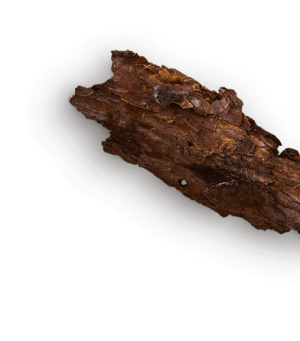What do effective inquiry questions sound like?
Learn thinking tools to help create effective inquiry questions.

Overview
In this activity, students use criteria and a thinking strategy to develop effective questions to guide inquiry into which geological resource extraction in B.C. has the greatest impact on the environment. These thinking tools can be used by students to create effective inquiry questions in multiple contexts. While this activity uses examples related to geological resources, other examples could be used to help nurture the Curricular competency of questioning and predicting.
Instructions
What you'll need
- "Determining effective inquiry questions” worksheet
- “Rating the effectiveness of a inquiry question” worksheet
- "Generating effective inquiry questions” worksheet
- “Assessing my ability to create effective inquiry questions” rubric
- Organize your students into groups and provide each student with a copy of the “Determining effective inquiry questions” worksheet. Invite your students to make an initial decision: Which inquiry questions best fit with each assignment? Ask groups to think about why they made their decision and note their reasoning.
- Encourage groups to share their decisions and thinking with the class. Ask your students to think about what makes each question an effective inquiry question and to suggest the qualities of an effective inquiry question. Together with your students co-create, or share, the following criteria for an effective inquiry question:
- Provide clear and relevant direction: effective inquiry questions provide clear direction to help you satisfy the purpose of the task or assignment
- Interesting and important: effective inquiry questions lead to the discovery of interesting and important information
- Manageable: effective inquiry questions match the resources and time available.
- Provide each student with a copy of the “Rating the effectiveness of an inquiry question” worksheet. Ask groups to revisit their initial decisions and now apply the criteria for an effective inquiry question: have their decisions changed or stayed the same? Encourage students to revise the given questions to better meet the criteria if needed. Invite groups to select one assignment topic and use the criteria to write their own effective inquiry question.
- Explain to your students that they are going to practice using the criteria by developing effective inquiry questions for the following topic: Which geological resource extraction in B.C. has the greatest impact on the environment? Provide each student with a copy of the “Generating effective inquiry questions” worksheet. This worksheet can be used by students for other contexts as well.
- Invite your students to work collaboratively as they:
Think about what they already know about the topic. You might prompt student thinking by asking:
- What are the different types of geological resources found in B.C.?
- What are the environmental impacts of geological resource extraction in B.C.?
List related ideas that might be interesting or useful to answer the question.
You might prompt student thinking by asking:
- What parts of the environment can be harmed?
- What are the general impacts that extraction has on the environment?
- Instruct groups to create three inquiry questions and rate each question based on the criteria for an effective inquiry question. Students can revise their questions as needed to better meet the criteria. Encourage groups to share their questions with the class.
- Conclude this activity by inviting your students to suggest other contexts where these thinking tools, especially the criteria, might be useful.
Modify or extend this activity
Modifications
In Step 4, you might want to encourage your students to clarify the task and the focus of the research project. You could use these prompts if your students need help clarifying the task.
- I need to find out…
- I need to take a look at…
- I need to find evidence of…
- I need to decide…
Extensions
Encourage your students to complete the research project and visually present their findings to the class.
Curriculum Fit
Earth Sciences 11
Big idea
- Earth materials are changed as they cycle through the geosphere and are used as resources, with economic and environmental implications
Content
- Economic and environmental implications of geologic resources within B.C. and globally
Curricular competency
Questioning and predicting
- Make observations aimed at identifying their own questions, including increasingly abstract ones, about the natural world
Assessments
Throughout the activity consider how well students:
- Contribute to respectful group discussion
- Use the criteria to identify and create effective inquiry questions
Guide students in using the “Assessing my ability to create effective inquiry questions” rubric during the activity.
Teaching Notes
This activity assumes a working knowledge of the types of geologic resources within B.C. including minerals, ores, fossil fuels (ex. natural gas, oil, coal), metals, and aggregates.
To learn more about geological resources in B.C. visit:
- Minerals and metals in B.C.
- Fossil fuels production in B.C.
- Aggregates in B.C.






